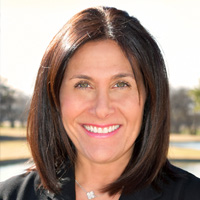As part of our “Love Essentially” series, Jackie Pilossoph helps us navigate the complex world of relationships. Have a question that you would like her to answer? Contact her here, and it may be featured in an upcoming article!
Faith is a word that can represent many different things. Having faith can mean that you have complete confidence or trust in something or someone. It can also mean that you have a strong belief in God or religion, even if you have no tangible proof. Each person is unique in his or her level of faith, including when it comes to death.
If you have lost someone recently, I am sharing a list of five things they may want to say to you. It is meant to offer comfort to those in bereavement and after.
You might be wondering how I know what the deceased want to say. The truth is, I don’t. I’m not a psychic, but what I have is my faith, particularly what I think those in heaven want us to know based on the death of my father who passed away three years ago, and two of my friends who died this past year.
1. You’re doing great.
I believe our loved ones are supporting us, reassuring us, and even cheering us on from heaven. They want us to know that we are going to be fine, even without them.
2. Don’t be sad.
Those who love us don’t want us to mourn them forever. Instead, they want us to celebrate life. They hope we laugh again, enjoy what we can, and remember them in life, not in death.
3. I’m OK if you find love again.
In regards to widows and widowers, I know so many people who feel guilty for their desire to fall in love again, like they are doing something wrong if they choose to date. I think their spouses in heaven feel the opposite. Think about it. If you died, would you want your husband or wife to be alone? Of course not.
4. I’m not mad about anything.
I don’t believe that resentment, anger, or pettiness is possible in death. Unlike love and the wonderful memories you shared, your loved one isn’t holding onto any negative feelings, and they want you to know that.
5. I’m with you all the time.
Shortly after my dad died, my friend told me to pinch my skin. Why? She said, “Your skin is your father’s skin. He is alive in you and always will be.” I never forgot that. But even if it’s not a blood relative, if you allow yourself to think about your loved one, the benefits of feeling the person there far outweighs the pain of your loss.

In addition to my own words of faith, I sat down with Dr. Marjorie Newman, a North Shore based psychologist to talk about coping with the loss of a loved one. Newman, who has a specialty in grief and bereavement, said grieving never ends, but for some, talking to the deceased helps immensely.
“I have patients who have lost loved ones and they talk to them often,” said Newman, who has been in practice since 2010. “One of my patients prays every night and then spends a period of time talking to her husband about her day and what’s going on with the family. It’s a way to process her grief and still feel connected to the husband she’s lost.”
Newman said some people also write notes to loved ones who have passed, especially if things were left unresolved.
“If there are feelings they might be afraid to express like anger or resentment, and they keep it inside, that can harm them,” she said. “Getting their feelings out in the open and on paper can feel freeing. Once they express themselves, the burden is off of them and they can really move through their grief and make space for a sense of peace or positive memories that were being blocked by the unexpressed emotions.”
Another great route to feeling comfort and peace is having conversations with others about your loved one.
“What can be most difficult for someone who is in bereavement is that the people around them are hesitant to talk about the person who died because they think it is uncomfortable and they don’t want to upset someone,” Newman said. “But that’s the opposite of what someone who is grieving needs. They need to still feel that connection with their loved one and the way to still feel it is to celebrate that person, to reminisce or hear stories about the person. That keeps their memory alive and it’s soothing.”
According to Newman, when you talk about the person’s life and what he or she contributed, it can make you feel less alone.
“They may be gone, but what they leave behind are the memories and the lessons they conveyed and the impact they had on people while they lived,” she said. “The person hasn’t just disappeared. They still live on in the stories.”
In closing, faith is a personal choice. How much we want to believe about a connection with a deceased loved one is something every person gets to decide.
People often talk about “signs” they get from those who have died. I have a friend who believes her mom is in her presence every time she sees a dime on the ground. I actually still ask my dad for advice, and believe it or not, I always get a response in my head. I don’t know if he’s talking to me from above, or if he did such a good job while he was alive that his words still come to me.
“Feeling the presence of someone deceased is hard to put into words because it doesn’t necessarily sound rational, but it doesn’t have to be,” Newman said. “It’s a profound feeling of someone being in the room with you and knowing your thoughts. It defies logic but it’s very common.”
 Jackie Pilossoph is a former television journalist and newspaper features reporter. The author of four novels and the writer of her weekly relationship column, Love Essentially, Pilossoph is also the creator of the divorce support website, Divorced Girl Smiling. Pilossoph holds a Masters degree in journalism and lives in Chicago with her two teenagers.
Jackie Pilossoph is a former television journalist and newspaper features reporter. The author of four novels and the writer of her weekly relationship column, Love Essentially, Pilossoph is also the creator of the divorce support website, Divorced Girl Smiling. Pilossoph holds a Masters degree in journalism and lives in Chicago with her two teenagers.

